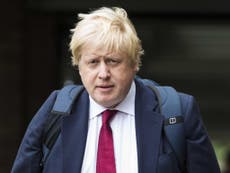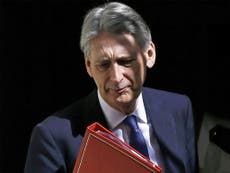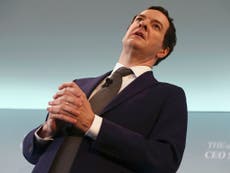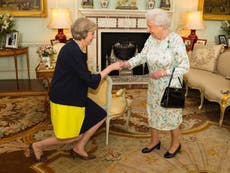Theresa May outside 10 Downing Street: what she said and what she meant
The new Prime Minister addressed the nation in Downing Street: our Chief Political Commentator decodes her words


The new Prime Minister’s first words rose to the historic occasion. Presenting herself as a centrist leader who understood that many people feel ill-served by politicians, she delivered a well-crafted message and delivered it well.
“In David Cameron, I follow in the footsteps of a great modern Prime Minister. Under David’s leadership, the Government stabilised the economy, reduced the budget deficit and helped more people into work than ever before.”
I am continuity as well as change. David has just told you what a wonderful job he did. I am here, an hour later, to say what a terrible state the nation is in, and how much more work there is for me to do.
“But David’s true legacy is not about the economy but about social justice. From the introduction of same-sex marriage to taking people on low wages out of tax altogether, David Cameron has led a One Nation government and it is in that spirit I also plan to lead.”
I am a social liberal and on the side of people on middle and lower incomes. The New Labour coalition. The centre ground vacated by Jeremy Corbyn and on which I plan to park my tanks.
“Because not everybody knows this, but the full title of my party is the Conservative and Unionist Party. And that word Unionist is very important to me. It means we believe in the Union, the precious, precious bond between England, Scotland, Wales and Northern Ireland.”
A bit of history for the party grassroots that helps to underline a big message for my premiership: one of the reasons I was a Remainer despite being opposed to current levels of immigration was the danger of Scotland breaking away. I am determined not to let it happen. Nicola Sturgeon, I have your number.
“But it means something else that is just as important. It means we believe in the union not just between the nations of the United Kingdom but between all of our citizens, every one of us, whoever we are and wherever we are from.”
A play on the double meaning of union is a better rhetorical device than Ed Miliband’s “Together”, don’t you think? “Together: a different idea for Britain,” he said in 2014. I’ll show him how it’s done.
“That means fighting against the burning injustice that if you are born poor you will die on average nine years earlier than others. If you are black you are treated more harshly by the criminal justice system than if you are white.”
Allow me to pay a compliment to my predecessor-but-two, Tony Blair, who forced the Conservative Party to care about poverty and racial discrimination. I’ve been telling my party this for 14 years. Now I can put it into practice in government.
“If you are a white working-class boy, you are less likely than anybody else in Britain to go to university. If you are at a state school, you are less likely to reach the top professions than if you are educated privately.”
The underachievement of white working-class boys is a problem that has been neglected for too long, and I can sound more left-wing than Labour, always wary of sounding like class warriors, by talking about the divisiveness of private education. And I can sound a bit more credible than my Etonian predecessor.
“If you are a woman, you will earn less than a man. If you suffer from mental health problems, there’s not enough help to hand. If you are young, you will find it harder than ever before to own your own home.”
And I’m a feminist. And I will take on two of the toughest challenges facing modern governments: mental illness and the housing market.
“But the mission to make Britain a country that works for everyone means more than fighting these injustices. If you are from an ordinary working-class family, life is much harder than many people in Westminster realise.”
I feel your pain.
“You have a job but you don’t always have job security. You have your own home but you worry about paying the mortgage. You can just about manage but you worry about the cost of living and getting your kids into a good school.”
I have read about your pain in focus-group transcripts.
“If you are one of those families, if you’re just managing, I want to address you directly. I know you are working around the clock, I know you are doing your best, and I know that sometimes life can be a struggle. The Government I lead will be driven not by the interests of the privileged few but by yours.”
Let me use the simple but effective device of identifying you and addressing you directly, and contrasting “your” interests with those of some imaginary rich people who used to run the establishment until about an hour ago.
“We will do everything we can to give you more control over your lives. When we take the big calls, we will think not of the powerful, but you. When we pass new laws, we will listen not to the mighty, but to you. When it comes to taxes, we will prioritise not the wealthy, but you.”
You think I’m a wooden technocrat? I can do rhetoric. Just listen to this device: we will think not of them, but you. And I will get the emphasis right. Dramatic, no?
“When it comes to opportunity, we won’t entrench the advantages of the fortunate few, we will do everything we can to help anybody, whatever your background, to go as far as your talents will take you.”
For the many not the few. Where have you heard that before? Well, I mean it.
“We are living through an important moment in our country’s history. Following the referendum we face a time of great national change. And I know because we are Great Britain, we will rise to the challenge. As we leave the European Union, we will forge a bold new positive role for ourselves in the world.”
“As we leave”: just in case you thought that I, as a Remainer, might try to stall on delivering the Brexit demanded in the referendum.
“And we will make Britain a country that works not for the privileged few but for every one of us. That will be the mission of the Government I lead and together we will build a better Britain.”
For the many not the few, again. And I, daughter of a Middle England vicar, can rail more convincingly against privilege than someone who went to Eton. I am on a mission. Do not get in my way.





Join our commenting forum
Join thought-provoking conversations, follow other Independent readers and see their replies